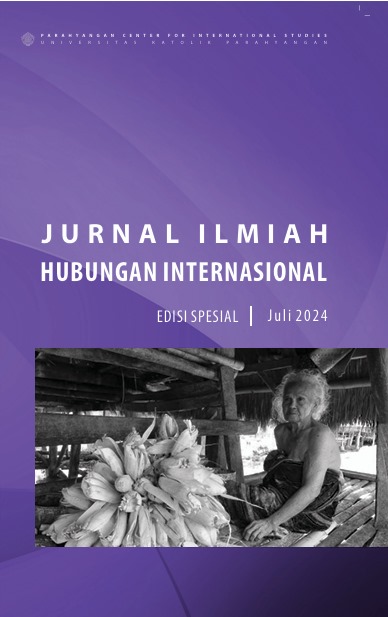The Ecofeminist Perspective on The Impact of Climate Change on Women's Health: Study Case of Coastal Women in Sendang Biru Hamlet, Indonesia
DOI:
https://doi.org/10.26593/jihi.v1i1.7832.32-46Abstract
Climate change poses major challenges for vulnerable groups throughout the world, especially women in coastal areas of Indonesia. Climate change presents a complex set of challenges that disproportionately impact vulnerable groups, with women often bearing the brunt of the impacts due to existing socio-cultural norms and unequal access to resources and decision-making processes. In Indonesia, coastal communities face increasing risks from rising sea levels, extreme weather events and coastal erosion caused by climate change. Women, who are often the primary caregivers and resource managers in these communities, bear a disproportionate burden of disasters caused by climate change. They experience increased vulnerability due to socio-cultural norms, limited access to resources, and limited power in making decisions. The impacts of climate change on women in Sendang Biru coastal areas are seen in various forms, including increased economic insecurity, loss of livelihoods, increased health risks, and disrupted access to health facilities. In addition, women's traditional roles as natural resource managers and family caretakers make them vulnerable to environmental degradation and displacement. Integrating an ecofeminist perspective in climate change strategy and mitigation explains how coastal women are exposed to risk, experience vulnerability, face problems in access to health and safety.
Keywords: Ecofeminism, Coastal women; climate change; health; global health
Downloads
Published
Issue
Section
License
Copyright (c) 2024 Jurnal Ilmiah Hubungan Internasional

This work is licensed under a Creative Commons Attribution 4.0 International License.
This journal uses Creative Commons license (CC BY). We allow readers to read, download, copy, distribute, print, search, or link to the full texts of its articles and allow readers to use them for any other lawful purpose. The author must be aware that the article copyrights will be fully transferred to Jurnal Ilmiah Hubungan Internasional only if the article is accepted to be published in the journal through signing of the Copyrights Transfer Agreement. Authors are allowed to resend their manuscript to another journal or intentionally withdraw the manuscript only if both parties (JIHI and Authors) have agreed on the related issue. Once the manuscript has been published, authors are allowed to use their published article under Jurnal Ilmiah Hubungan Internasional copyrights.





